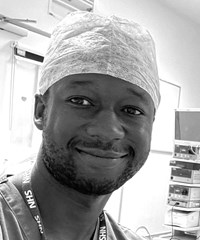Specialty Editors
Specialty
- ENTA - Audiology - Adult
- ENTA - Audiology - Auditory Implants
- ENTA - Audiology - Diagnostic
- ENTA - Audiology - Paediatric
- ENTA - ENT
- ENTA - General
- ENTA - Genetics
- ENTA - Head & Neck
- ENTA - Imaging
- ENTA - Laryngology / Swallowing / Voice
- ENTA - Maxillofacial Surgery
- ENTA - Neurotology
- ENTA - Otology
- ENTA - Paediatrics
- ENTA - Rhinology / Sinus
- ENTA - Rhinoplasty
- ENTA - Skull Base Surgery
- ENTA - Skull Base Surgery: Anterior
- ENTA - Skull Base Surgery: Lateral
- ENTA - Speech and Language Therapy
- ENTA - Thyroid / Parathyroid Surgery
- ENTA - Tinnitus
- ENTA - Vestibular Disorders
- Show all
Top Of Page
WEBSITE DETAILS
ABOUT US
GUIDELINES
Accreditations


Pinpoint Scotland Ltd (Registered in Scotland No. SC068684) | © 2026 - Website by Gecko Agency






